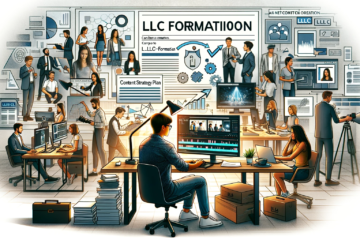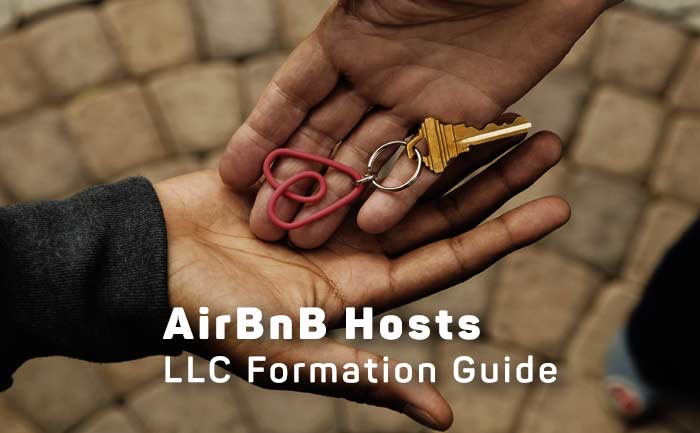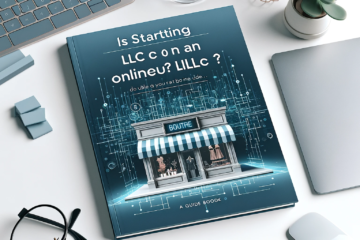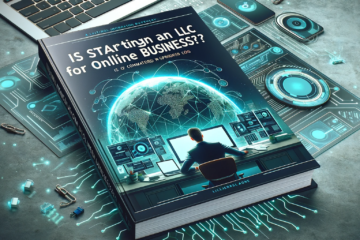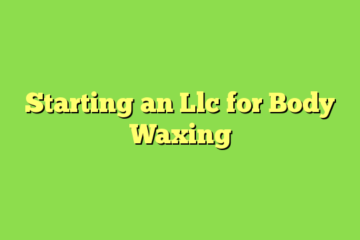Are you considering starting an LLC for your bottled water business? You’ve come to the right place. In this article, we will guide you through the essential steps to get your business up and running.
From choosing a business name and registering your LLC to obtaining permits and licenses, setting up production and distribution, and managing finances and tax obligations, we’ve got you covered.
So, let’s dive in and turn your bottled water dreams into a successful reality.
Brainstorm unique and memorable names that align with the brand identity and convey the right message to customers. Conduct thorough trademark research to avoid legal issues and trademark infringement lawsuits. Obtain the necessary permits and licenses to extract and bottle water, ensuring safety and quality. Source high-quality water, develop a targeted marketing strategy, invest in modern bottling equipment, and establish an efficient distribution network.
Choosing a Business Name
When starting your LLC for a bottled water business, it’s important to carefully choose a business name that accurately reflects your brand and resonates with your target market. Brainstorming creative business names is the first step in this process. This involves generating a list of potential names that are unique, memorable, and relevant to your industry. Consider using techniques like wordplay, alliteration, or combining words to create a catchy and distinctive name. It’s crucial to ensure that the name aligns with your brand identity and conveys the right message to your customers.
Once you have narrowed down your list of potential names, it’s essential to conduct thorough trademark research. This step is often overlooked but is crucial to avoid legal issues in the future. Trademark research helps determine if the name you have chosen is already registered or if there are any similar names that could lead to confusion. By conducting this research, you can avoid potential trademark infringement lawsuits and costly rebranding efforts down the line.
Registering Your LLC
To register your LLC for a bottled water business, you’ll need to follow the necessary legal procedures. The LLC formation process involves several steps that need to be completed accurately and in a timely manner.
Firstly, you’ll need to choose a unique name for your LLC that complies with the state’s naming requirements. Once you have a name, you must file the necessary paperwork, typically known as Articles of Organization, with the appropriate state agency. This document usually includes information about your LLC’s name, address, and the names of its members or managers. Additionally, you’ll likely need to pay a filing fee. After submitting the required documents and fees, your LLC will be officially registered with the state.
Registering your LLC offers several benefits for a bottled water business. Firstly, it provides you with limited liability protection, separating your personal assets from the business’s liabilities. This means that if your business faces any legal issues or debts, your personal assets will generally be protected. Additionally, registering an LLC can enhance your business’s credibility and professionalism, as it demonstrates that your business is a legitimate entity.
Moreover, an LLC allows for flexible management and tax advantages. The members of an LLC can choose to manage the business themselves or appoint managers to handle the day-to-day operations. Additionally, an LLC offers flexibility in how it’s taxed, allowing you to choose between being taxed as a sole proprietorship, partnership, or corporation.
Obtaining Permits and Licenses
To obtain the necessary permits and licenses for your bottled water business, you’ll need to follow specific legal requirements. One crucial aspect is obtaining water sources that meet the standards set by regulatory agencies. You must ensure that the water you use for bottling is safe and of high quality. This involves conducting regular testing and analysis to confirm compliance with health and safety guidelines.
Firstly, you need to identify potential water sources, such as springs, wells, or municipal water supplies. Once you have chosen a source, you must obtain the necessary permits to extract water from that location. This typically involves submitting an application to the appropriate regulatory agency, providing detailed information about the source, and paying any associated fees.
Secondly, you need to ensure water quality throughout the bottling process. This includes implementing proper filtration and purification systems, as well as regularly testing the water for contaminants. Maintaining accurate records of testing results is essential to demonstrate compliance with regulatory standards.
Additionally, you may need to obtain specific licenses related to operating a bottling facility. These licenses may vary depending on your location and the specific regulations in place. It’s essential to research and understand the requirements in your jurisdiction to ensure full compliance.
Setting Up Your Production and Distribution
Once you have obtained the necessary permits and licenses for your bottled water business, it’s time to set up production and distribution.
The first step in this process is sourcing high-quality water. It’s crucial to find a reliable and reputable supplier that can provide you with clean and safe water for bottling. Conduct thorough research and consider factors such as water source, purification methods, and quality control measures to ensure the water meets industry standards.
Next, you need to develop a marketing strategy to effectively promote your bottled water products. Start by identifying your target market and understanding their preferences and needs. This will help you tailor your branding and messaging to appeal to your intended audience. Consider implementing various marketing tactics such as advertising, social media campaigns, and partnerships with local businesses to increase brand awareness and drive sales.
In addition to sourcing high-quality water and developing a marketing strategy, it’s important to establish efficient production and distribution processes. Invest in modern bottling equipment and ensure that it complies with industry regulations. Create a detailed production plan that includes quality control measures, packaging requirements, and production timelines. Develop a distribution network that can effectively reach your target market and ensure timely delivery of your products.
Managing Finances and Tax Obligations
When managing finances and tax obligations for your LLC in the bottled water business, it’s important to maintain accurate records and seek professional guidance. Proper bookkeeping and record keeping are essential for tracking your income and expenses, ensuring compliance with tax laws, and maximizing tax deductions.
To effectively manage your finances, you should establish a system for tracking all financial transactions related to your business. This includes keeping detailed records of sales, purchases, expenses, and any other financial activities. By maintaining accurate and organized records, you’ll have a clear picture of your financial position and be better prepared for tax season.
Seeking professional guidance from a certified public accountant (CPA) or tax advisor is highly recommended. They can help you navigate the complex tax regulations and ensure that you take advantage of all available deductions. A CPA can also provide valuable advice on tax planning strategies to minimize your tax liability and maximize your profits.
In addition to accurate record keeping and professional guidance, it’s important to familiarize yourself with the tax obligations specific to your LLC in the bottled water business. This may include paying sales tax on your products, filing quarterly estimated tax payments, and submitting annual tax returns.
Conclusion
In conclusion, starting an LLC for a bottled water business requires careful consideration of various aspects such as:
- Choosing a business name
- Registering your LLC
- Obtaining permits and licenses
- Setting up production and distribution
- Managing finances and tax obligations
By following these steps in a systematic and efficient manner, you can establish a successful and compliant bottled water business.
Frequently Asked Questions
Can I Start an LLC for a Bottled Water Business if I Don’t Have Any Prior Experience in the Industry?
Yes, you can start an LLC for a bottled water business without prior industry experience. However, it is important to be aware of the challenges of entering the competitive bottled water market.
What Are the Legal Requirements for Labeling and Packaging Bottled Water?
To ensure compliance with labeling requirements and packaging regulations for bottled water, you must adhere to guidelines set by the FDA. Properly labeling your product and using appropriate packaging materials is crucial for legal compliance and consumer safety.
How Can I Protect My Bottled Water Brand and Prevent Others From Copying It?
To protect your bottled water brand and prevent others from copying it, you should consider obtaining trademark protection. This will give you exclusive rights to your brand and help safeguard your intellectual property.
Are There Any Specific Regulations or Guidelines for Sourcing and Treating the Water Used in My Bottled Water Business?
To ensure compliance with sourcing regulations and water treatment guidelines, research the specific requirements for the bottled water industry. Obtain permits and licenses, conduct regular water quality testing, and implement appropriate treatment processes to maintain the safety and purity of your product.
Can I Sell My Bottled Water Products Online and Ship Them Directly to Customers?
Yes, you can sell your bottled water products online and ship them directly to customers. Utilize various selling platforms and implement effective marketing strategies to reach your target audience and maximize sales.

Aisha Noreen is an owner of a small business with more than 9 years of experience in the marketing industry. With the wisdom of an old soul, she always seeks innovation and mind-blowing ROI techniques. Her unique approach helped many small businesses thrive and she can surprise you in many ways as well. Believe it or not, her energy, passion, and creativity are contagious enough to transform your business and take it to another level.


